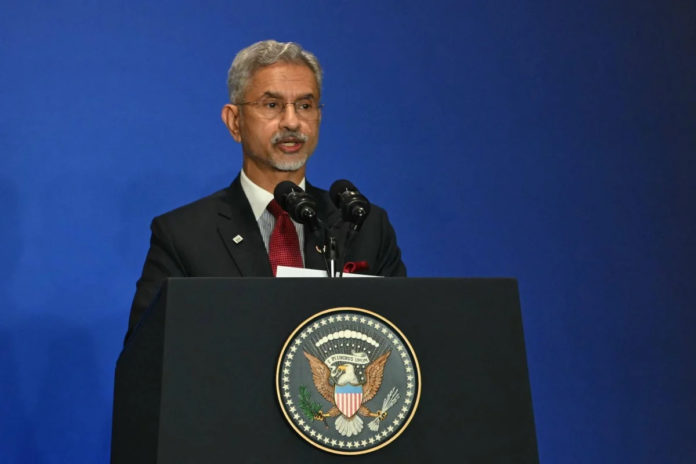India can ‘chew gum and walk at the same time,’ Jaishankar says of his country’s membership of both Quad and China-Russia aligned Brics
The relationship between Beijing and New Delhi has become vital not only to Asia’s future but also to the broader global order, although the neighbors’ “parallel rise” also poses a “unique problem”, according to Indian Foreign Minister Subrahmanyam Jaishankar.
“I think the India-China relationship is key to the future of Asia. In a way, you can say, if the world is to be multipolar, Asia has to be multipolar,” he said, adding that the ties between the two unfriendly neighbors would “influence not just the future of Asia, but in that way, perhaps the future of the world as well”.
Jaishankar, who was India’s ambassador to China from 2009 to 2013, made the remarks on Tuesday on the sidelines of the United Nations General Assembly during an event hosted by Asia Society, a think tank in New York.
The decades-old Himalayan border dispute between China and India remains the most contentious aspect of their ties. A fraught peace prevailed along the Line of Actual Control for decades after the 1962 Sino-Indian war but it was broken by a deadly border brawl in 2020, killing at least 20 Indian and four Chinese soldiers in the Galwan Valley in the Ladakh region.
“Right now, both sides have troops who are deployed forward,” Jaishankar said, adding that although disengagement had been the focus over the past four years, it was “only one part of the problem”.
The “main issue”, he said, was patrolling those disputed areas along the border because the arrangement put in place in the 1990s and early 2000s was “disturbed” after the Galwan clashes.
“Some of the patrolling issues need to be resolved, but once we deal with the disengagement, there is the larger issue, which both of us have brought very large number of troops up to the border. So there is what we call the de-escalation issue,” the top Indian diplomat noted.
Highlighting that China and India each had a population of more than a billion, Jaishankar acknowledged that their ascent in the global order, along with their “overlapping peripheries”, created an unusual issue.
“If you look today in global politics, the parallel rises of India and China, I would say, present a very unique problem,” he said.
To tackle this challenge, New Delhi has aligned more closely with Washington as China’s military might and economic influence have grown in recent years.
India is a member of the Quad, a US-led security bloc that includes Japan and Australia.
The Quad was originally formed in 2004 but became dormant until 2017. The alliance has since been enthusiastically embraced by US President Joe Biden as part of his Indo-Pacific strategy.
The group is aimed at what the Biden administration calls “maintaining peace and stability” in the Indo-Pacific region. China has criticized it as a “small clique” that is “bent on provoking confrontation”.
India is the only Quad country that shares a land border with China. Last week, leaders of the Quad nations announced an expansion of their joint maritime security operations into the Indian Ocean and closer coastguard integration throughout the Indo-Pacific.
However, New Delhi is also a member of Brics, a grouping that includes China and Russia. Despite concerns from the US, India has continued to buy oil from Russia, a long-time friend.
On Tuesday, Jaishankar again ruled out picking a side. “We chew gum and walk at the same time,” he quipped as he was asked about taking part in varied forums with competing powers. “Times have moved on,” he said.
He described the Quad as a “non-treaty” way of working with like-minded countries that were “market economies, political democracies and pluralistic societies” that “also are all maritime powers, and they have a common interest in dealing with the Indo-Pacific”.
But Jaishankar added that it was not “feasible to expect that big countries constrain their options and do not deal with other countries, not because of their interest but because somebody else has a problem with those countries”.
Courtesy: SCMP




